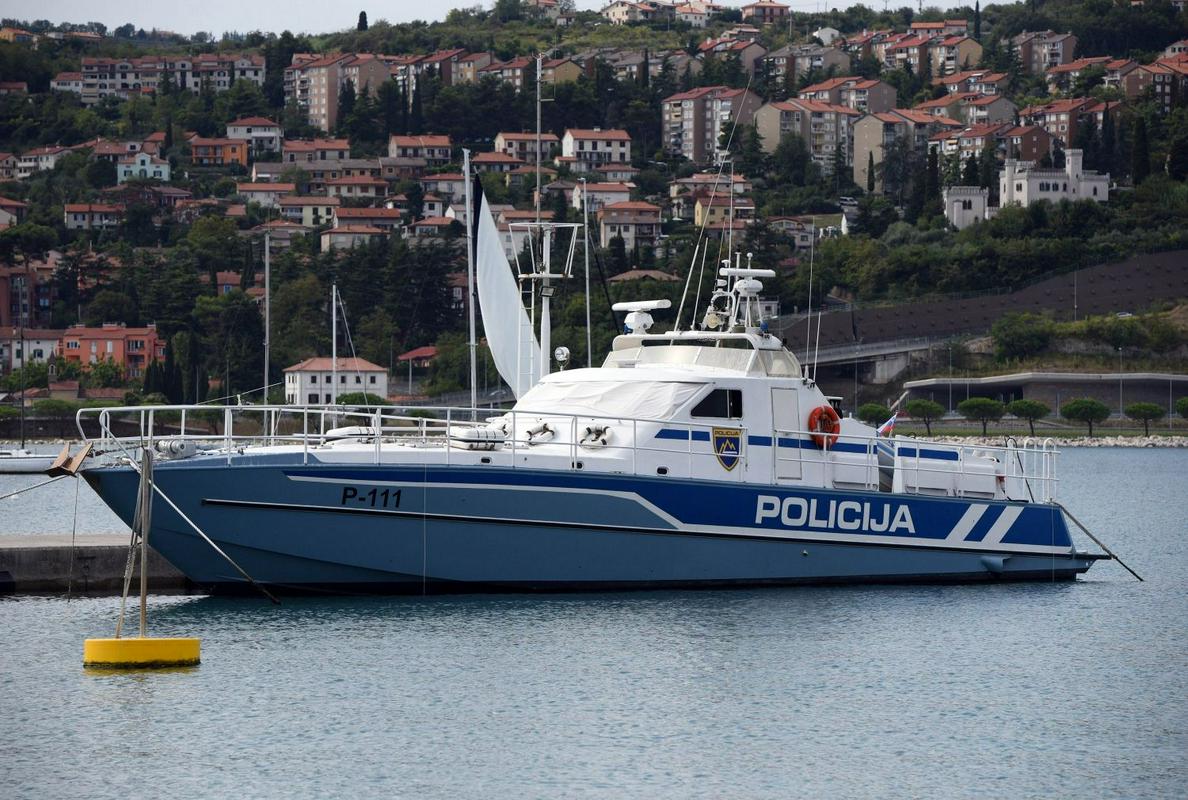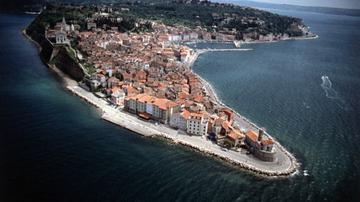
The Slovenian Interior Ministry explains that all illegal sea border crossings will be dealt with in line with the Aliens Act, which envisages fines ranging from 500 to 1,200 euros for such offences. The offence proceedings are carried out in compliance with provisions from the Minor Offences Act. Entry to Slovenia may later be denied to those offenders who do not pay the fines.
Slovenia's police handled seven cases of Croatian fishing vessels, and ten cases of Croatian police boats, entering Slovenian waters between the 30th of December and the 2nd of January. According to media reports one Croatian fisherman, accompanied by two Croatian police boats, was caught fishing in the Bay of Piran on Wednesday. The fisherman was confronted by Slovenian police and a fishing inspector.
High fines for illegal fishing
Fishing inspectors have the power to prosecute illegal fishing activities. They monitor the sea in cooperation with the police. An illegal fishing offence is determined by several factors when engaged in fishing activities, such as fishing without a permit or fishing with inadequate fishing equipment. Fines for fishing without a valid permit for industrial fishing ranges between 1,200 and 41,000 euros for legal entities, between 420 and 33,000 euros for sole proprietors, and from 420 to 1.200 euros for individuals.
No fines have been issued so far, as the proceedings have still not been finalized. The procedures for delivering and enforcing the fines are carried out in line with existing legislation covering this field. According to the law, the procedure for delivering penalties is done through courts. The legal sanctions are then enforced by the home country of the offender. Apart from fines, offenders can also face the seizure of goods.
Croatian fishermen can apply for permits
Croatian fishermen can in fact fish in Slovenian waters if they obtain a special license. The holder of a license for industrial fishing in Croatia, who wants to have the right to fish in Slovenian territorial waters, must apply for a special permit at the Slovenian Ministry of Agriculture, Forestry and Food. The license is valid from the 1st of November onwards for the whole next calendar year. The applications are treated by the ministry which, in line with EU regulations, will allow up to 25 permits for Croatian fishing vessels, which will be allowed to catch up to 100 tonnes of fish per year.
At the same time the ministry has expressed hope that Croatia will respect EU's regulations and its commitments from the Accession Treaty, and that it will also allow Slovenian fishermen to fish in its waters to the same extent. The ministry has given Slovenian fishermen the contact information of a law firm they can turn to, in case they run into problems with Croatian authorities while fishing in Slovenian territorial waters.
Croatian minister: No fishermen will face any damages
After a meeting with Croatian fishermen, Croatia's agriculture minister Tomislav Tolušić said the arbitration decision was not binding for Croatia and that it will not implement it. Croatia's border and position, according to Mr. Tolušić, will not move for even a "millimeter". Croatia's minister added that the "dispute is not from yesterday, and it cannot be solved by tomorrow". He also added there have been no incidents along the border with Slovenia so far, and that in the past month no fisherman in the Bay of Piran has had to pay any fines.
Minister Tolušić said Croatia would protect its fishermen in Savudrija, as they are Croatia's "guarantee for sovereignty". He further stressed that they have all the information with regards to the movement of Slovenian vessels in the Bay of Piran, and that they have everything they need to launch proceedings against Slovenia if the government in Ljubljana opts to insist on its unilateral decisions. Mr. Tolušić reiterated that Croatia wants to have friendly communication and dialogue with Slovenia.



























































